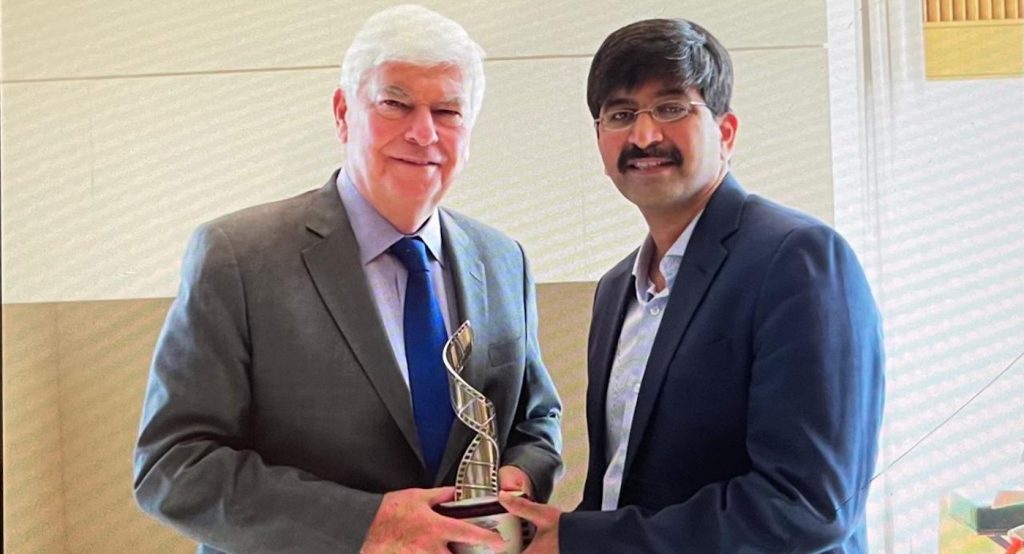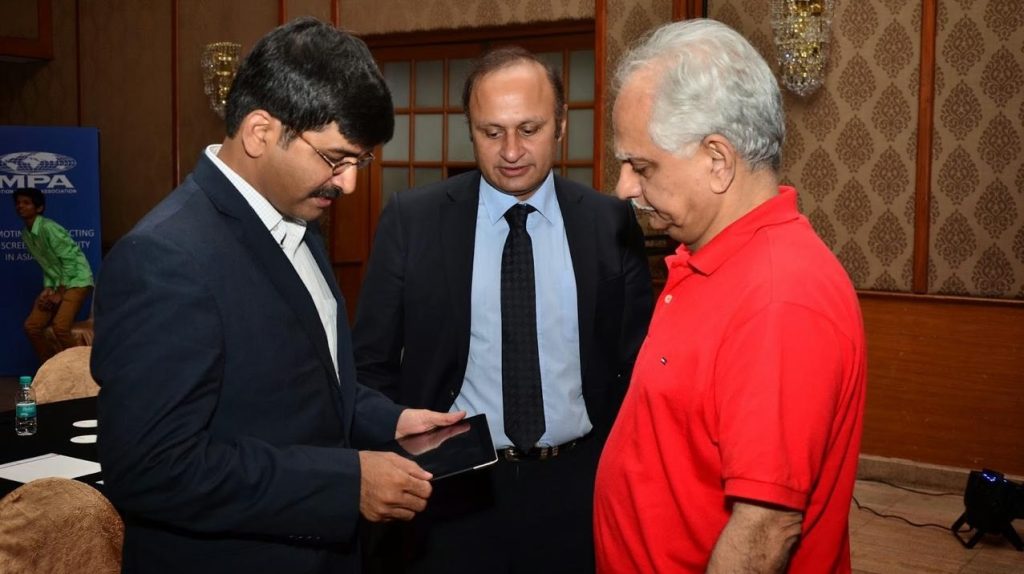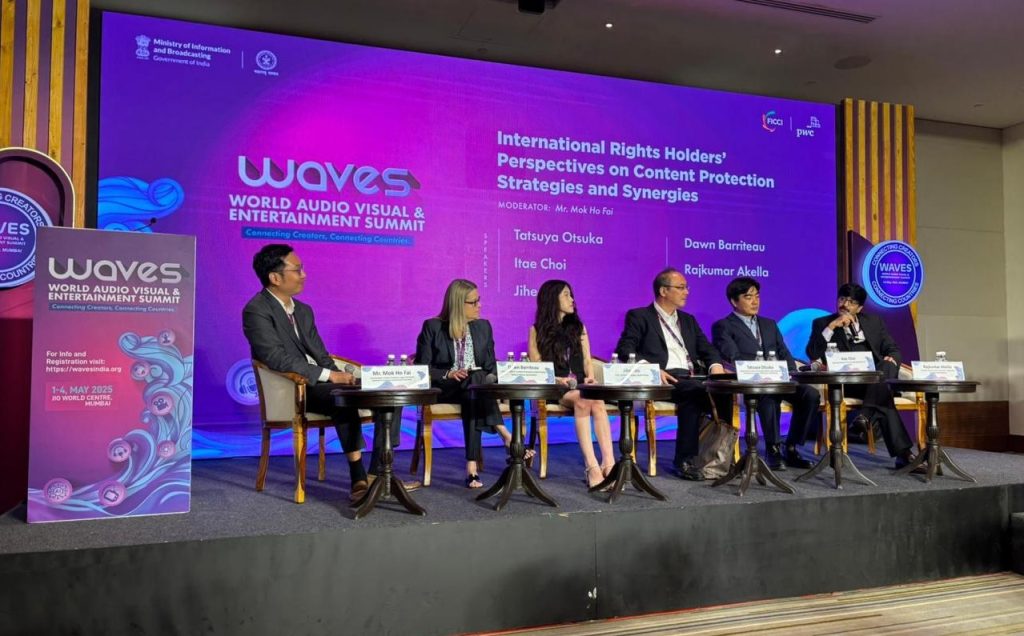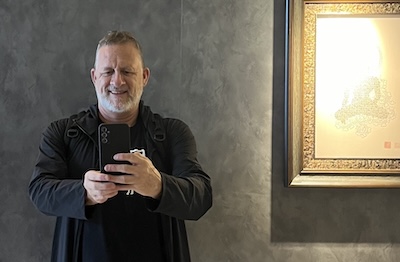From Teenage Pirate Hunter to Global Anti-Piracy Leader: Rajkumar Akella’s Mission to Protect Creative Content
Rajkumar Akella’s mission started almost the moment he joined the entertainment industry, when he brushed up against piracy for the first time.
These days, as the chairman of India’s Telugu Film Chamber of Commerce’s Anti Video Piracy Cell, Akella is leading the fight against piracy globally. Back then, as a teenager trying to turn a dollar, selling taped versions of Indian movie soundtracks and with “youthful energy,” he met with the pirates head-on.
“I gathered courage and actually confronted them, and it really paid off,” says Akella, smiling at the memory. “Over a period of time, I could actually claim that I could convert some of those hard-core pirates into legit businesses.”
It was an experience that helped set Akella’s life in motion. Throughout his career, he has witnessed the evolution of the fight against piracy from a physical approach, involving raids, arrests, and the confiscation of DVDs, to a primarily online effort that tracks the global movement of data.
In 2016, Akella was handed the MPA Asia-Pacific Copyright Educator (ACE) Award, which recognized his work in helping industry players in India protect their content. Today, speaking from his home in Hyderabad, Akella reflects on how the very nature of piracy has evolved, as have the methods he uses to fight it.

How has piracy in the Indian film market evolved over the years?
When Eega, directed by S. S. Rajamouli, was released [in 2012], we went to a particular cinema in a Tier 2 city in the erstwhile state of Andhra Pradesh, and we found through forensic watermarking that actually the cinema operator was facilitating cam-cording. We shut down the theater as a strong message to such offenders and all the pirates that nobody can encourage piracy in any manner.
By the time Baahubali: The Beginning was released in 2015, by the afternoon of the opening day, piracy had already broken out. It was devastating for the director, the producer, and everybody. By then, we already had a mechanism of tracking down the IP addresses, but [the pirates] had already wizened up. All these pirates were already using other methodologies to hide their identities.
What we’ve found, when we put all the information together, is that this was a global network. Some people were in Jabalpur, Pune, Delhi, Chennai, Gwalior, Mumbai, Sri Lanka, Bangladesh, Paris, Nepal, Pakistan, and so on. This shows how complicated the landscape of piracy has become. It’s not happening from one place anymore; it’s not very simple anymore.
Why do you think people use these sites?
The biggest motivator for movie piracy is that people want to watch the content immediately after it is released. That is the biggest motivator for pirates: we have a six- to eight-week window for the OTT release, and people won’t wait that long. This sense of urgency to consume content is actually a boon and a bane for the movie industry.
Secondly, and even more importantly, the perception, or rather the misconception, that pirated content is free. But that is the biggest fallacy. There is nothing free in the world. The so-called “free” pirated content comes with a huge cost, in the form of people’s personal data or identity, which they are largely unaware of or tend to ignore.
Could you share one of the most memorable or impactful operations you’ve been involved in?
We had started an international film distribution company with offices in the United States, Singapore, and Hyderabad in 2002. One of the first films we launched in the DVD format was Sampoorna Ramayanam [1972], based on the great Indian epic. We had acquired the home video rights at a steep price, as it was a very prestigious project. The DVD technology was evolving, and this was probably the first ever DVD from India with multiple language soundtracks and multiple language subtitles. We invested a great deal of time and effort in compiling the various soundtracks and struggled for several months to complete the translations into numerous Indian and foreign languages.
But then, before we could even fully market or monetize the DVDs, piracy came as a shock and ate into our rightful revenues. It was heartbreaking. It was more than money. Around that time in Chicago, we noticed a group of pirates engaged in pirating DVDs. We had invested our heart and soul, along with our hard-earned money, in creating world-class DVDs of Telugu content, only to see people pirate them unscrupulously in an instant.
Soon, we engaged a Copyright Attorney in New York and then conducted a raid in Chicago in 2003, with the help of Homeland Security. We actually confiscated a massive haul of pirated DVDs – about 97,000 DVDs – belonging to not just us but several copyright holders.
You helped set up the Anti-Video Piracy Cell for the Telugu Film Chamber of Commerce (TFCC) in 2005, and it has been a key player in the fight against piracy in India. Could you speak to some of the key initiatives and programs the TFCC has implemented?
When I shared insights of this experience with the thought leaders in the Telugu film industry, they could see the long-term implications of the piracy menace. I said no individual can actually address this issue; this has to be an industry issue. So we set up what was then the first-ever dedicated Anti-Piracy Cell by the movie industry in India in 2005.
Around 2010, I was selected as the chairman of the anti-piracy cell, and that was the time when online piracy emerged. We could see that this is going to be the future, so we need to engage professionals to tackle this issue. Up until then, we had about 15 retired cops to tackle piracy, targeting physical pirates and prosecuting them. We had conducted over six thousand anti-piracy raids. But today, if you really look at it, rather than dealing with physical pirates, we have the digital pirates everywhere.
Does that make the job harder?
Conceptually, it’s easier when you have the political will, stakeholder cooperation, and collaboration, because when it is online, everybody leaves a digital trail – they have a digital footprint. You have to convince the governments of the day that this is a serious crime, as the general perception is that piracy is a victimless crime, and all that. It’s not true. There are so many hundreds and thousands of people impacted by this. In just the Telugu film industry alone, there are over 15,000 daily wage workers, and across India, this number runs into hundreds of thousands.

How has the focus of the work that you do changed?
If somebody is committing a crime, they must be punished, of course. But that is secondary, because the legal process and convictions take a very long time. As an industry, our primary concern is ensuring we can optimize our legitimate revenue. That really belongs to the Creator, the producer, the content maker.
Most content creators can’t afford the legal battles. For them, true justice is when they can deter people from distributing or consuming pirated content. So we thought, instead of waiting for convictions post facto, we should proactively initiate measures to stop piracy before it damages prospects. The challenge is to make the Government appreciate the urgency, time sensitivity, and gravity of the issue. Because for the creator fraternity, justice delayed is justice denied.
At India’s recent World Audio-Visual and Entertainment Summit (WAVES), you were part of a panel discussing international perspectives on content protection. What did you share about India and its market for international content?
One thing now is that every piece of content we create has the potential to reach a global audience. There is nothing like ‘This will only cater to this particular audience.’ There is no longer that concept; it’s passé. Any piece of content you create has the potential to reach a global audience. So basically, you need to protect your content wherever it goes.
You know, today in India, there are about 30 million Japanese anime fans – 30 million! And there are about 15 million fans of K-dramas and K-pop. And in fact, in some regions of India, the audiences aren’t even familiar with Bollywood or Indian stars; they only watch K-drama and K-pop; they’re more popular than that, it’s crazy! Likewise, Indian content is becoming increasingly popular even in non-traditional markets and among audiences beyond the diaspora.

In your view, what are the most promising areas for cross-border collaboration?
We soon realized the necessity for global and cross-border collaboration with the advent of online media. So we [the Telugu Film Industry] were the first to sign an MOU [Memorandum of Understanding] with the Motion Picture Association and ever since have done several significant joint campaigns against piracy. And now with the Alliance for Creativity and Entertainment (ACE), we are working even more closely.
The idea is to bring all the industries across India and the globe together, to constantly stay connected, share actionable information and knowledge, and evolve strategies together, and be able to impress upon the governments, wherever we are, to go after these pirates. Unfortunately, the trend has always been that the bad guys use technology better than the legit guys, be it offshore hosting companies, cryptocurrencies, or using AI.
Secondly, the most exciting thing that has happened in the digital era is that everybody is a creator, making some form of creative content, be it reels, music, songs, micro movies, and so on. Right now, I think it’s one of the best times for any creative process. And if we can put in place these checks and balances, and a very robust mechanism to deal with piracy, then it is the golden age for every creator.
What are you seeing in terms of the pirates expanding into other forms of criminal activity?
Today, it is not just about piracy; they’re also stealing your identity. Recently, experts have observed that about 70 per cent of all cybercrime originates from digital piracy, as it often seems harmless to people. But the fact is, piracy is used as a bait, as a trap to steal people’s identities, to infringe on data privacy, and to spread malware, which will then lead to online fraud, financial scams, and other cybercrimes.
In India, identity theft is a huge threat. We have recently seen the notorious “digital arrest” scam in India. They are looting millions and millions of dollars from gullible people because they are stealing their identities and they are actually using it, or misusing that information, to threaten them and extort money. This is all happening because if it’s a very innocuous pirate site, you might want to watch a popular movie or series, but in the process, they’re stealing your data, your privacy, and your identity. This issue is morphing into many complex problems for society as a whole, which is why it’s crucial that we work together against it.
For more interviews with filmmakers, producers, and industry professionals taking big swings in Asia, check these out:
Oscar-Nominated “Elvis” Producer Schuyler Weiss on What’s Right About Korea’s Filmmaking Industry
From “Kill Bill” to Martin Scorsese to “Shōgun”: Producer Eriko Miyagawa on Her Hero’s Journey
From Mumbai to Batam: The Unexpected Journey of Dev Patel’s “Monkey Man”



